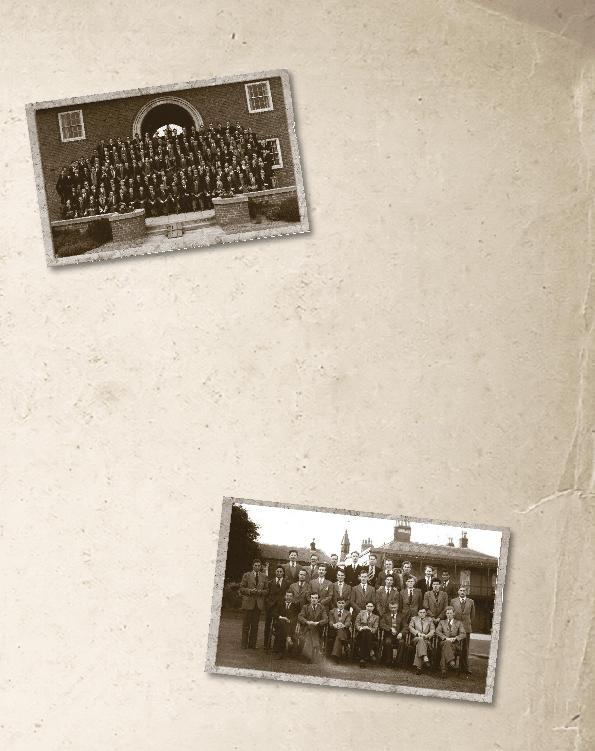
standards it was probably much more like an Oxbridge
College three or four students to a room,
supplementary heating provided by gas fires on a
meter, one tiny kitchen, a bathroom (no showers) and
two toilets to each floor and a daily allocation of milk
and sliced bread. Meals were taken in the main building,
except on Sunday evenings when we were issued with
Sunday supplies of tinned beans or mince, an egg and,
I think, fruit."
consisted of a number of grand old mansions situated
on the edge of Sefton Park. Heating was an open coal
fire which was lit by the first one of us 'home'. Coal was
rationed so we did our best to conserve our stocks,
secreting what we saved in a disused cupboard on the
landing. At the end of the year my friend and I moved to
University Hall. The warden, Dr Knight was
a wonderful lady who had lost a leg
during an expedition to Africa and was
well regarded by the students in her care.
She, and the hall, were guarded by
her white Scottish terrier and woe
betide a stranger or an intruder if
she let it off the lead!"
during 1966-7. We were supposed to prepare our food
and eat it in the kitchen, but we often ate it in our rooms.
As a result, we had mice - I remember a mouse running
across my pillow one night when I was just dropping off
to sleep. Men were only allowed in as visitors on
Wednesday and Friday afternoons. Some of us wanted
these hours extended, but more objected - they didn't
want men to see them in their rollers!"
with my next door neighbour from Dale Hall (1968/69).
However, I could not have imagined that 37 years later
my daughter would marry her son."
air raids livened up the first
year considerably. We had
no air raid shelters and the
only defence to bombing
was for those with rooms
on the top floor to double
up for sleeping with those
in the larger rooms below.
My companion was Hilton
Birtles studying
Ecclesiastical History,
We fire-watched on rota from the top of the University
Tower and saw much of the centre of Liverpool burn.
Hilton saw an incendiary bomb burst in a corner window
of Lewis' store and the fire spread to destroy the rest of
the whole building. The next day at Derby Hall we were
showered with small burnt portions of cloth.
livened up
the first year
considerably"